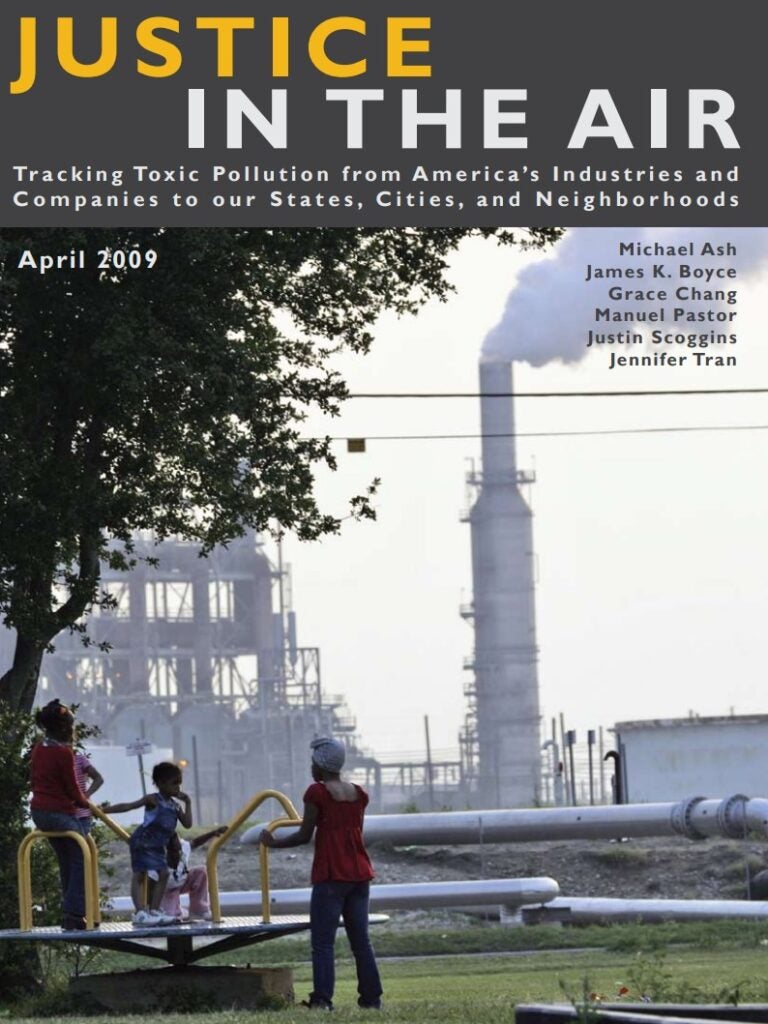
April 2009
By Michael Ash, James K. Boyce, Grace Chang, Manuel Pastor, Justin Scoggins, and Jennifer Tran[Ash, Boyce, and Chang are from the Political Economy Research Institute (PERI) at the University of Massachusetts, Amherst; Pastor, Scoggins, and Tran are from the Program for Environmental and Regional Equity (PERE) at the University of Southern California]
Please note: reports dated earlier than June 2020 were published under our previous names: the USC Program for Environmental and Regional Equity (PERE) or the USC Center for the Study of Immigrant Integration (CSII).
With climate change threatening our way of life, dirty air triggering asthma, and industrial pollutants causing cancer, the nation is more motivated than ever before to take a hard look at the problems we face and seek new approaches that can better secure the future of the planet and save lives.
This report contributes to that lofty goal. In it, we go beyond tracking the country’s biggest industrial polluters. And we go beyond saying which regions have the dirtiest air. While important, that’s been done before.
Instead, this study is one of the first to track, which states and metropolitan areas have the biggest gap between the health risk from toxic pollution faced by people of color and the poor compared to their proportion of the population. The results confirm what many Americans of color and low-income Americans have known for a long time: clean air is not necessarily an equal opportunity affair.
Perhaps the most unique aspect of our research is a list of the industrial companies whose pollution has the most disproportionate impacts on minority or low-income neighborhoods. Many companies are aware of their impacts on communities and the environment, and many have adopted strategies for becoming better corporate citizens. This report aims to contribute to these efforts by presenting a new measure of responsible corporate performance: whether a company does particularly unequal harm to its disadvantaged neighbors.
To develop this measure, we take data from the Risk-Screening Environmental Indicators (RSEI) model, a computer-based screening tool developed by EPA that takes emissions listed in the Toxic Release Inventory (TRI) and runs them through a series of toxicity factors and an air model to determine the resulting potential health risk. We add to those outcomes an analysis of the demographics of the neighborhoods that are most affected — and then track back to establish the corporate ownership of the plants in the TRI/RSEI.
To address the disparity issue by state, city, and neighborhood, we offer a series of recommendations, including defending and extending the right-to-know, linking modeling and monitoring, shifting pollution standards to assess cumulative impacts, and encouraging community, shareholder and consumer activism.
We hope that this report contributes to a broader conversation about our environmental challenges and will be of use to those activists, policy makers, and companies who are working daily to protect the environmental health and well-being of all Americans.



